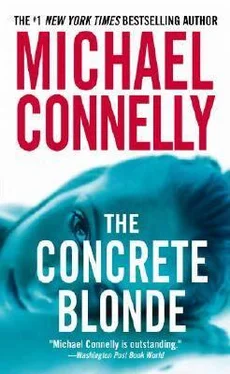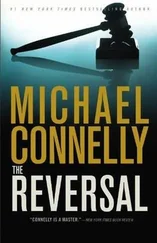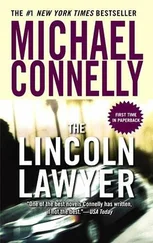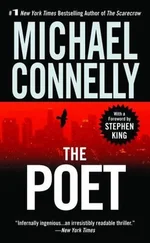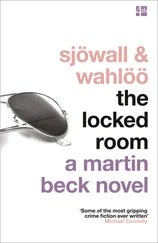Michael Connelly - The Concrete Blonde
Здесь есть возможность читать онлайн «Michael Connelly - The Concrete Blonde» весь текст электронной книги совершенно бесплатно (целиком полную версию без сокращений). В некоторых случаях можно слушать аудио, скачать через торрент в формате fb2 и присутствует краткое содержание. Жанр: Триллер, на английском языке. Описание произведения, (предисловие) а так же отзывы посетителей доступны на портале библиотеки ЛибКат.
- Название:The Concrete Blonde
- Автор:
- Жанр:
- Год:неизвестен
- ISBN:нет данных
- Рейтинг книги:3 / 5. Голосов: 1
-
Избранное:Добавить в избранное
- Отзывы:
-
Ваша оценка:
- 60
- 1
- 2
- 3
- 4
- 5
The Concrete Blonde: краткое содержание, описание и аннотация
Предлагаем к чтению аннотацию, описание, краткое содержание или предисловие (зависит от того, что написал сам автор книги «The Concrete Blonde»). Если вы не нашли необходимую информацию о книге — напишите в комментариях, мы постараемся отыскать её.
The Concrete Blonde — читать онлайн бесплатно полную книгу (весь текст) целиком
Ниже представлен текст книги, разбитый по страницам. Система сохранения места последней прочитанной страницы, позволяет с удобством читать онлайн бесплатно книгу «The Concrete Blonde», без необходимости каждый раз заново искать на чём Вы остановились. Поставьте закладку, и сможете в любой момент перейти на страницу, на которой закончили чтение.
Интервал:
Закладка:
After that, Chandler moved her questioning on to safer topics like Norman Church’s relationship with his daughters and then ended her direct examination with a weeper.
“Did he love his daughters?”
“Very much so,” Mrs. Church said as a new production of tears rolled down her cheeks. This time she did not wipe them away with a tissue. She let the jury watch them roll down her face into the folds of her double chin.
After giving her a few moments to compose herself, Belk got up and took his place at the lectern.
“Again, Your Honor, I will be brief. Mrs. Church, I want to make this very clear to the jury. Did you say in your testimony that you knew about your husband’s apartment but didn’t know about any women he may or may not have brought there?”
“Yes, that is correct.”
Belk looked at his pad.
“Did you not tell detectives on the night of the shooting that you had never heard of any apartment? Didn’t you emphatically deny that your husband even had such an apartment?”
Deborah Church didn’t answer.
“I can arrange to have a tape of your first interview played in court if it will help refresh your-”
“Yes, I said that. I lied.”
“You lied? Why would you lie to the police?”
“Because a policeman had just killed my husband. I didn’t-I couldn’t deal with them.”
“The truth is you told the truth that night, correct, Mrs. Church? You never knew about any apartment.”
“No, that’s not true. I knew about it.”
“Had you and your husband talked about it?”
“Yes, we discussed it.”
“You approved of it?”
“Yes…, reluctantly. It was my hope he would stay at home and we could work this stress out together.”
“Okay, Mrs. Church, then if you knew of the apartment, had discussed it and given your approval, reluctantly or not, why then did your husband rent it under a false name?”
She didn’t answer. Belk had nailed her. Bosch thought he saw the widow glance in Chandler’s direction. He looked at the lawyer but she made no move, no change in facial expression to help her client.
“I guess,” the widow finally said, “that was one of the questions you could have asked him if Mr. Bosch had not murdered him in cold blood.”
Without Belk’s prompting, Judge Keyes said, “The jury will disregard that last characterization. Mrs. Church, you know better than that.”
“I’m sorry, Your Honor.”
“Nothing further,” Belk said as he left the lectern.
The judge called a ten-minute recess.
During the break, Bosch went out to the ash can. Money Chandler didn’t come out but the homeless man made a pass. Bosch offered him a whole cigarette, which he took and put in his shirt pocket. He was unshaven again and the slight look of dementia was still in his eyes.
“Your name is Faraday,” Bosch said, as if speaking to a child.
“Yeah, what about it, Lieutenant?”
Bosch smiled. He had been made by a bum. All except for the rank.
“Nothing about it. I just heard that’s what it was. I also heard you were a lawyer once.”
“I still am. I’m just not practicing.”
He turned and watched a jail bus go by on Spring, heading to the courthouse. It was full of angry faces looking out through the black wire windows. Somebody by one of the back windows made Bosch as a cop, too, and stuck his middle index finger up through the wire. Bosch smiled back at him.
“My name was Thomas Faraday. But now I prefer Tommy Faraway.”
“What happened to make you stop practicing law?”
Tommy looked back at him with milky eyes.
“Justice is what happened. Thanks for the smoke.” He walked away then, cup in hand, and headed toward City Hall. Maybe that was his turf, too.
After the break, Chandler called a lab analyst from the coroner’s office named Victor Amado. He was a very small and bookish-looking man with eyes that shifted from the judge to the jury as he walked to the witness chair. He was balding badly, though he seemed to be no more than twenty-eight. Bosch remembered that four years earlier he had all his hair and members of the task force referred to him as The Kid. He knew Belk was going to call Amado as a witness if Chandler didn’t.
Belk leaned over and whispered that Chandler was following a good guy-bad guy pattern by alternating police witnesses with her sympathetic witnesses.
“She’ll probably put one of the daughters up there after Amado,” he said. “As a strategy, it is completely unoriginal.”
Bosch didn’t mention that Belk’s trust-us-we’re-the-cops defense had been around as long as the civil suit.
Amado testified in painstaking detail about how he had been given all of the bottles and compacts containing makeup that were found in Church’s Hyperion apartment and had then traced them to specific victims of the Dollmaker. He said he had come up with nine separate lots or groupings of makeup-mascara, blush, eyeliner, lipstick, etc. Each lot was connected through chemical analysis to samples taken from the faces of the victims. This was further corroborated by detectives who interviewed relatives and friends to determine what brands the victims were known to use. It all matched up, Amado said. And in one instance, he added, an eyelash found on a mascara brush in Church’s bathroom cabinet was identified as having come from the second victim.
“What about the two victims no matching makeup was found for?” Chandler asked.
“That was a mystery. We never found their makeup.”
“In fact, with the exception of the eyelash that was allegedly found and matched to victim number two, you can’t be one hundred percent sure that the makeup police did supposedly find in the apartment came from the victims, correct?”
“This stuff is mass produced and sold around the world. So there is a lot of it out there, but I would guess that the chances of nine different exact combinations of makeup being found like that by mere coincidence are astronomical.”
“I didn’t ask you to guess, Mr. Amado. Please answer the question I asked.”
After flinching at being dressed down, Amado said, “The answer is we can’t be one hundred percent sure, that is correct.”
“Okay, now tell the jury about the DNA testing you did that connected Norman Church to the eleven killings.”
“There wasn’t any done. There-”
“Just answer the question, Mr. Amado. What about serology tests, connecting Mr. Church to the crimes?”
“There were none.”
“Then it was the makeup comparison that was the clincher-the linchpin in the determination that Mr. Church was the Dollmaker?”
“Well, it was for me. I don’t know about the detectives. My report said-”
“I’m sure for the detectives it was the bullet that killed him that was the clincher.”
“Objection,” Belk yelled angrily as he stood. “Your Honor, she can’t-”
“Ms. Chandler,” Judge Keyes boomed. “I have warned you both about exactly this sort of thing. Why would you go and say something you know full well is prejudicial and out of order?”
“I apologize, Your Honor.”
“Well, it’s a little late for apologies. We’ll discuss this matter after the jury goes home for the day.”
The judge then instructed the jurors to disregard her comment. But Bosch knew it had been a carefully thought out gambit by Chandler. The jurors would now see her even more as the underdog. Even the judge was against her-which he really wasn’t. And they might be distracted, thinking about what just happened, when Belk stepped up to repair Amado’s testimony.
“Nothing further, Your Honor,” Chandler said.
“Mr. Belk,” the judge said.
Читать дальшеИнтервал:
Закладка:
Похожие книги на «The Concrete Blonde»
Представляем Вашему вниманию похожие книги на «The Concrete Blonde» списком для выбора. Мы отобрали схожую по названию и смыслу литературу в надежде предоставить читателям больше вариантов отыскать новые, интересные, ещё непрочитанные произведения.
Обсуждение, отзывы о книге «The Concrete Blonde» и просто собственные мнения читателей. Оставьте ваши комментарии, напишите, что Вы думаете о произведении, его смысле или главных героях. Укажите что конкретно понравилось, а что нет, и почему Вы так считаете.
